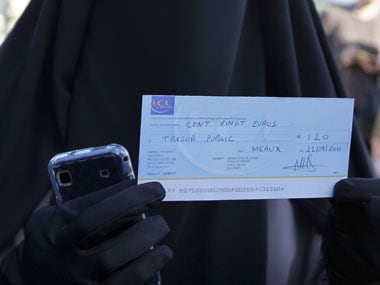Post-dated cheques (PDC) are a handy, convenient way to handle a financial transaction. But just how much can you trust that your bank will exercise utmost care while handling such cheques?
Not much, an instance cited in an RBI document shows. In fact, there are a number of ways a bank can goof up a simple task of clearing a PDC.
Picture this: you issue two cheques to a beneficiary, who deposits the cheques in her bank. One cheque gets cleared, while the other is returned on the ground that your account does not have sufficient funds. Your bank also charges a penalty on you for the dishonoured cheque. But the truth is, the presenting bank had actually failed to see the date on the cheque and presented the cheque before the date you had issued the cheque for. In other words, you have been penalised for no fault of yours.
[caption id=“attachment_515384” align=“alignright” width=“380”]
 New cheque norms. Reuters[/caption]
New cheque norms. Reuters[/caption]
This is no imaginary situation. The above example comes from the Reserve Bank of India’s banking ombudsman office. In this case, the aggrieved customer finally approached the banking ombudsman, which held both the banks at fault. The presenting bank was at fault for presenting the post dated cheque before the due date and the second bank for not scrutinising the date of the instrument before processing. “The BO (banking ombudsman) observed that both the banks were negligent and careless as a result of which the complainant suffered financial as well as reputation loss following cancellation of the contract entered into by him and as such a mere apology to the complainant was not enough to compensate the loss suffered by the complainant. BO ordered both the banks to pay Rs 10, 000 each as token compensation to the complainant,” the RBI document said.
Usually banks do not commit such silly mistakes on cheques. But, as the above example shows, one cannot rule it out completely. And, frankly, there is nothing much you can do in such circumstances for the simple reason that it is not your mistake at all, provided your handwriting is clear and eligible. To know how to write a cheque, read this. Also, what we can learn from the above example is that the banking ombudsman is an highly approachable grievance redressal mechanism of the RBI. So the next time you have a problem with your bank and if it is not getting rectified to your satisfaction, do move the banking ombudsman.
)